IRGC Chief Admits Its Counter-Intelligence Was Targeted
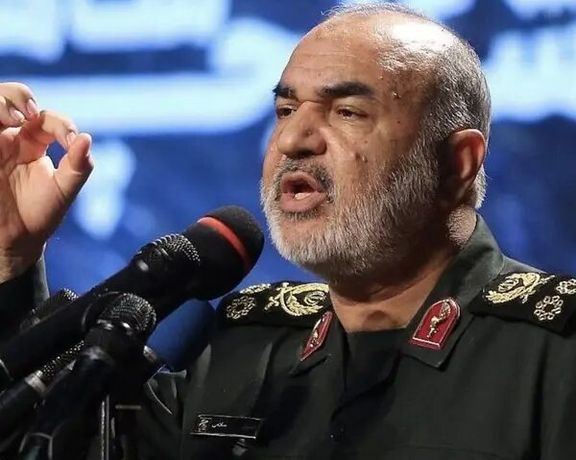
After repeated incidents showing widespread infiltration in its intelligence and security networks reportedly by Israel, Iran’s IRGC admitted its counter-intelligence was targeted.

After repeated incidents showing widespread infiltration in its intelligence and security networks reportedly by Israel, Iran’s IRGC admitted its counter-intelligence was targeted.
During a ceremony to introduce the new IRGC counter-intelligence chief on Thursday, Revolutionary Guard’s commander Hossein Salami acknowledged the experience and expertise of Israeli and Western intelligence agencies, saying that “the enemy seeks to strip us of our self-confidence and make us feel empty inside.”
Calling on all commanders, officials and all the Revolutionary Guards to foil enemies’ plots, he said, “This is the most dangerous and mysterious kind of aggression... The enemy's most successful experience is in its intelligence operations."
“The Intelligence Protection Organization of the Islamic Revolutionary Guard Corps is engaged in direct confrontation with all the experienced and skilled intelligence and security services,” Salami said, admitting that they “have the collapse of many regimes on their record.”
On Monday, Brigadier General Majid Khademi, the head of the Defense Ministry’s Intelligence Security, was appointed by the Supreme Leader to succeed Mohammad Kazemi as the new chief of the IRGC Intelligence Organization’s information security (SAS InfoSec).
Kazemi replaced the controversial cleric Hossein Ta’eb as chief of the IRGC Intelligence Organization (SAS). Ta’eb’s replacement after 13 years at the helm of SAS which was announced on June 23 came as a big surprise and fueled many speculations about the reasons for his dismissal.
The SAS IntelSec is responsible for protecting the IRGC against infiltration by undesirable political fractions and leakage of information as well as monitoring of the forces’ commanders and the staff.
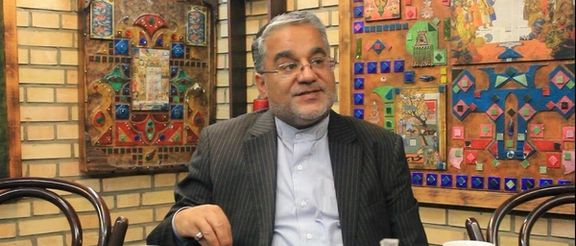
An Iranian foreign ministry expert says the invasion of Ukraine has brought about major changes in international relations and Tehran should adapt itself.
Mojtaba Ferdowsipur, who is the director of West Asian Studies Group at the Iranian Foreign Ministry's Political and International Studies Center, has said in an interview with moderate conservative website Khabar Online on Wednesday, June 29, that in view of recent global developments and Iran's potentials, "the Islamic Republic should replace its offensive positions with defensive postures."
He said that one of the consequences of the war in Ukraine is its impact on energy supply in the world, and this has affected US President Joe Biden’s approach to the Middle east and energy issues, with adopting a realistic view toward West Asia with an eye on the significance of the region's oil reserves.
"One of the reasons for Biden's visit to Saudi Arabia is that the United States needs that country's oil. An increase in Saudi Arabia's oil output will lead to a reduction of prices in the international oil markets. This can largely prevent an energy crisis in the United States," Ferdowsipur said, adding that "this can also affect the Democrats' popularity before the [midterm] elections."
At the same time, Israel wants to use Biden’s trip the region to bring Saudi Arabia into the Abraham Accords, and this would have big impact on geopolitics.
The analyst added that "as a result of the war in Ukraine, international coalitions are no longer based on cooperation. Instead, they are based on a combination of cooperation, cooperation and rivalry. As a result, interactions between Israel and Egypt or between Israel and Turkey are likely to be based on competitions and rivalries."
Although Ferdowsipur avoided explaining what it would mean for Iran to adopt a defensive posture, but the context of his remarks pointed to a foreign policy based on both cooperation and competition, instead of stark choices against or in support of different countries.
Ferdowsipur added that "relying on relations and cooperation with Iran's neighbors may not work for the country. We should adopt a policy of cooperation and competition based on geopolitics." He explained that "Iran should show its weight in in the region's geopolitical developments and make sure that its share from the corridors in the region is respected by others."
Ferdowsipur also pointed out that "If Russia has a 20-year contract with Iran, this does not mean that Moscow will not compete with Tehran in the region's geo-economy." He further explained that "Iran is likely to sustain losses if it does not rely on a combination of cooperation and competition. Thus, tying the country's interests to relations with a single countrywill not secure Iran's interests."
The best example of this occurs in matters relating to the JCPOA. As Iran is a country under sanctions, other countries might change track to evade secondary sanctions, he said.
The analyst maintained that Iran should try to benefit from the geopolitical changes by securing its share of regional corridors in Karabakh region and the North-South corridor Russians are currently using to transport their goods.
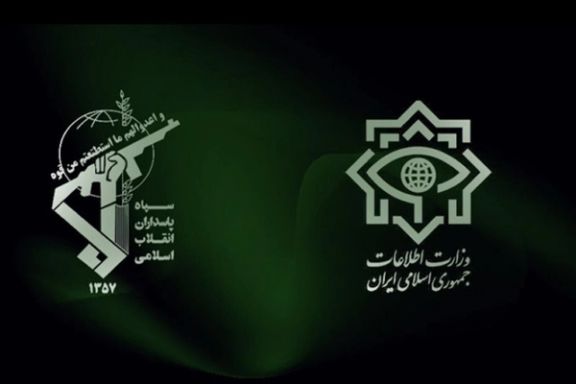
Egypt has reportedly warned Iran not to target Israelis on its territory, demanding to be kept out of the Islamic Republic’s shadow war with Israel.
Citing unnamed sources, London-based pan-Arab daily Al-Arabi Al-Jadeed said on Wednesday that Egyptian security officials warned Iran not to operate on Egyptian soil during recent meetings among intelligence officials.
According to the Qatar-backed media outlet, Egyptian officials warned Iranian counterparts that any attempt to carry out attacks against Israelis in the country would harm ties between Cairo and Tehran.
“Egyptian officials informed their Iranian counterparts that Egypt will not accept the its security reputation to be tied to the ongoing conflict between Tel Aviv and Tehran,” which has flared up following a series of killings of scientists and elements of the Revolutionary Guards as well as several cyberattacks by both sides.
The sources said that “the Iranian side assured Egyptian officials that Iran is keen not to harm the state of peace with Egypt” and that “Israeli allegations about attempts to target Israeli tourists in third countries is a lie,” despite reports that Turkey and Israel recently thwarted attempts to target Israeli civilians in Turkish territory.
“The Egyptian warning to Tehran came after leaks obtained by Cairo from the Israeli side, claiming that Egypt and the UAE are the new likely countries where Iran seeks to target Israelis,” following the failure in Turkey, “which prompted the Iranians to think of alternatives to restore their credibility," Al-Arabi Al-Jadeed reported.
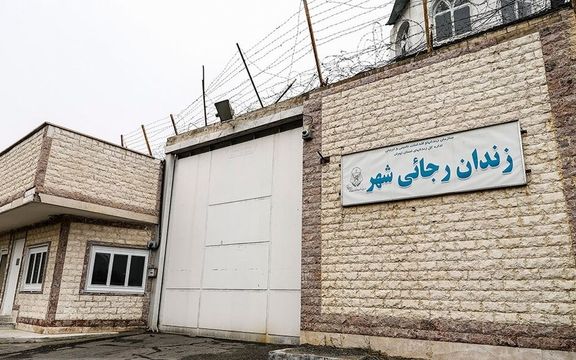
About a week after the execution of eight people in Rajai-Shahr Prison in Karaj, aka Gohardasht Prison, 10 other prisoners were executed in the same jail on June 29.
According to human rights groups, at least 97 prisoners have been hanged in Iranian prisons during the past 40 days.
Earlier in the month, human rights groups said the Islamic Republic hanged 12 Baluchis, including one woman, in Zahedan prison in the southeastern province of Sistan-Baluchestan.
In a communiqué released on Tuesday, the leaders of the Group of Seven (G7) reiterated their shared profound concern over “the continued human rights violations and abuses in Iran,” including arbitrary arrest and detention, as well as Iran’s increased use of capital punishment.
A few days earlier, UN Secretary General António Guterres released a report on the situation of human rights in Iran, decrying “the high number of death penalty sentences and executions” and “reports of death in prison due to denial of adequate and timely medical care.” The UN chief said that the number of executions in Iran increased from at least 260 cases in 2020 to 310 individuals in 2021, and the number continued to rise into 2022.
Earlier in the month, Amnesty International’s annual report on worldwide use of the death penalty showed Iran as a country with a “disturbing spike” in executions.
The 66-page report found Iran executed at least 314 people in 2021, a 28 percent jump from at least 246 in 2020 and the highest figure since 2017. Amnesty said that in Iran “death sentences were disproportionately used against members of ethnic minorities.”
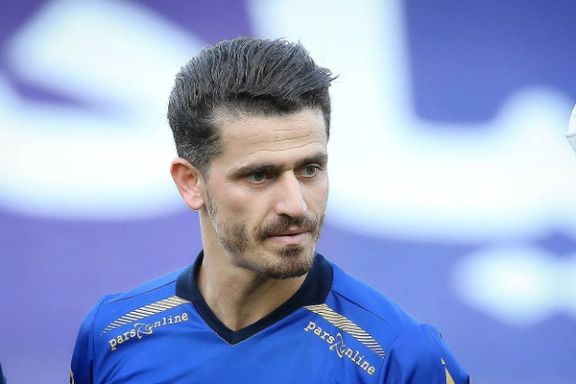
Many Iranians are praising a football star who was fired from his team for criticizing the government, and they condemn the authorities for pressuring athletes.
Fans took to social media when it became clear on Tuesday that the Persian Gulf Pro League Esteghlal FC had no intention of renewing the contract of its captain, Voria Ghafouri and pushed the hashtag “Voria is not alone” to the top of Persian Twitter. A group of Esteghlal fans also held a protest rally outside the club’s headquarters after the announcement was made on Wednesday.
Ghafouri’s future with his club and the national team became highly doubtful in May when he rebuked the government for its handling of protests sparked by a sudden rise in prices and many feared that the authorities would push for his exclusion from his team as punishment.
“Voria Ghafouri was excluded because he did not consent to side with the government against the Iranian people,” dissident blogger Hossein Ronaghi tweeted. “In the Islamic Republic sports is totally political ... Elimination of popular athletes [who speak up] is meant to cover up the crimes of the government,” he wrote.
Hardliners deny any connection between the footballer’s political views and his exclusion from his team due to alleged interference of state authorities.
In a tweet Wednesday, Abdolreza Davari, one of former President Mahmoud Ahmadinejad's advisors and confidants who later turned against him, accused the former captain of Esteghlal FC of making controversial statements “to play victim” because he knows but at the age of 35 he is no longer physically fit to play and that the renewal of his contract is not likely.
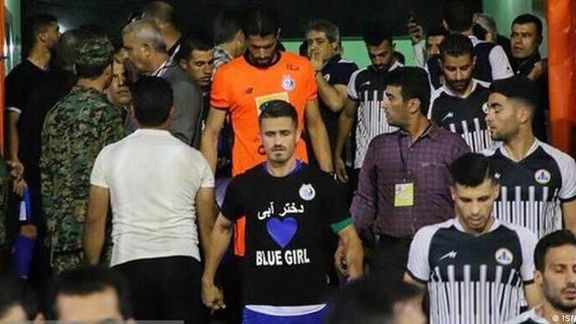
“It is the right of the Iranian people to live a happy life,” the national team star said in a post-match interview in May in reference to the economic and social pressures Iranian people have been enduring and said authorities responsible for it must feel shame.
The outspoken footballer has been in trouble with the authorities for quite some time. In 2019 he was summoned for explanations after he criticized Foreign Minister Mohammad-Javad Zarif in an Instagram post for saying Iranians were “proud of being under pressure defending the people of Palestine, Lebanon, Yemen and Syria.”
"You are not under pressure … It is the ordinary people who are under pressure," Ghafouri retorted to Zarif.
Ghafouri’s criticism of Iran’s regional policies and the authorities for downplaying the impact of US sanctions on ordinary Iranians also drew an angry response from Supreme Leader Ali Khamenei.
"Some people, who benefit from the country's peace and security enjoying their jobs and their favorite sports, bite the hand that feeds them,” Khamenei said in a clear reference to Ghafouri in a public speech on February 18, 2019.
Ghafouri was summoned by the Ministry of Sport for an explanation for his comments within a few hours of Khamenei's speech.
The footballer is also known for supporting women's right to watch football in stadiums from which they have been banned for over four decades.
In 2019, a young girl, Sahar Khodayari, died in hospital after setting herself on fire outside a court in Tehran where she was to go on trial for attempting to enter a stadium disguised as a man to watch her favorite team. She became known as ‘The Blue Girl’ for the color of her club. Ghafouri wore a jersey with Blue Girl written on his chest to honor herbefore a match.
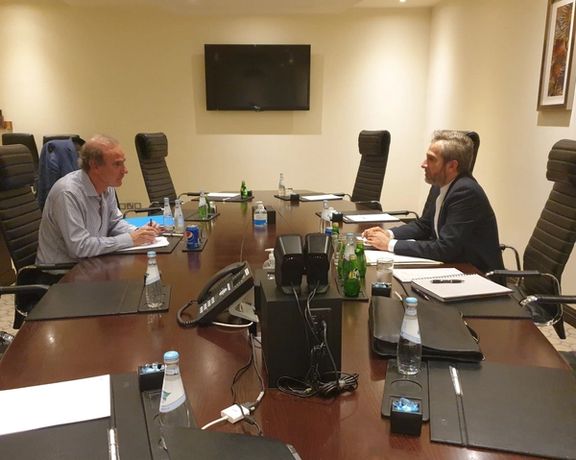
Indirect talks between Tehran and Washington in Qatar to resolve remaining issues in negotiations to restore the landmark 2015 nuclear pact ended without progress.
Calling the proximity talks “two intense days” of negotiations, EU's envoy Enrique Mora tweeted Wednesday evening that “Unfortunately, not yet the progress the EU team as coordinator had hoped-for. We will keep working with even greater urgency to bring back on track a key deal for non-proliferation and regional stability.”
It is not clear whether there might be a further round, while Tehran and Washington have yet to comment on how the talks have progressed, or what they expect next.
Moreover, Axios quoted an unnamed US official as saying that "The Iranians have not demonstrated any sense of urgency, raised old issues that have been settled for months, and even raised new issues that are unrelated to the 2015 nuclear agreement.”
According to the source, “A deal has been available for some time. If there is a side that needs to take a decision, it’s them — and it’s been them for months."
Earlier in the day, Tasnim news agency, with links to the Revolutionary Guards, reported that the Tehran-Washington nuclear talks in Qatar had ended without agreement, a claim quickly rebutted by the foreign ministry.
Tasnim said the American side refused to give "guarantees for Iran's economic benefits” from the deal.